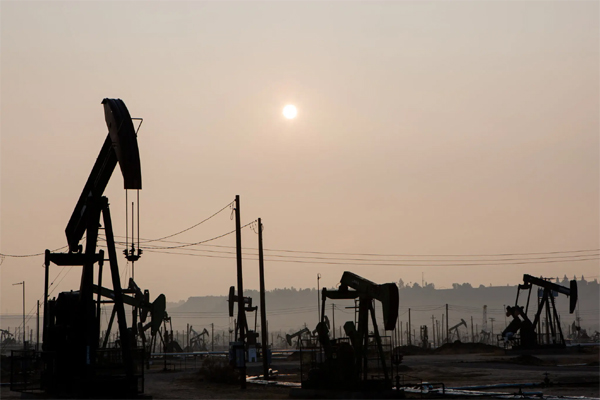
By Wayne Stoltenberg and Merrill Matthews
President Biden has urged oil and natural-gas companies to ramp up production, and you’d think, given the current high prices, that it would be in their interest to do so. But the industry has been slow to respond, with some justification. Companies expect that as soon as the current turmoil subsides, the Biden administration will shift back to hostile rhetoric, anti-energy legislative proposals, and oppositional regulatory policies.
Oil and gas prices on the New York Mercantile Exchange are at five-year highs. But many publicly traded producers are pursuing a strategy that looks like “orderly liquidation”—only maintaining or modestly increasing production volumes. Meanwhile, they are returning significant cash to shareholders in dividends and share repurchases.
Devon Energy recently issued guidance for 2022 that refers to capital spending in the range of $1.9 billion to $2.2 billion on new-well drilling and completing activity, and a production target of 570,000 to 600,000 barrels of oil equivalent a day. That’s a modest increase in capital spending, from $1.85 billion in 2021, and a modest decrease in production, from 611,000 in the fourth quarter of 2021. Devon also anticipates increased cash returns to shareholders for 2022.
Like many in the industry, Devon obviously believes it’s better to return capital to its shareholders than to reinvest in the business. The reason is the left’s incessant demonizing of the fossil-fuel industry, leading to near pariah status, which has succeeded in driving capital away from the industry. Small and midsize producers rely more on outside capital than larger companies such as Exxon to increase their production.
Last September, 20 House Democrats introduced the Fossil Free Finance Act, which would require the Federal Reserve Bank to take steps to stop banks from investing in fossil-fuel production. The bill’s goal was “no financing of new or expanded fossil fuel projects after 2022,” the Naderite group Public Citizen noted approvingly.
Then there’s the harping about excessive profits, which led Sen. Elizabeth Warren to propose a new tax. “The oil companies need to understand that the benefits of price gouging will be sharply undercut by a tax that’s not across the board, but instead is a tax on how their profits increase during this short-term crisis,” she declaimed.
There was a time when most people understood that if you want less of something, tax it, and if you want more, subsidize it. Even though Democrats’ more radical legislation is unlikely to pass, the message to participants in the highly regulated financial markets is clear: We want to see less, not more, capital flowing to domestic oil and gas production.
Unsurprisingly, many larger intuitional investors have heard the message and are touting their support for clean energy and opposition to fossil-fuel production.
Oil and gas producers are subject to many of the same supply-chain roadblocks and price increases that hinder other industries. If they can’t find willing long-term capital providers, it is difficult for them to ramp up production. And they can’t find that funding primarily because they’ve been the target of a multiyear mission to defund and destroy the industry.
If investors and producers are acting as though they don’t hear the current administration’s demands for more drilling now, it’s in large part because they heard their condemnations for drilling in the past.
____________________________________________________________
Wayne Stoltenberg, a former executive vice president and chief financial officer of Vine Energy Inc., is chairman of the Dallas-based Institute for Policy Innovation. Merrill Matthews is a resident scholar with IPI. Energiesnet.com does not necessarily share these views.
Editor’s Note: This article was originally published by The Wall Street Journal (WSJ), on June 08, 2021. All comments posted and published on Petroleumworld, do not reflect either for or against the opinion expressed in the comment as an endorsement of Petroleumworld.
Use Notice: This site contains copyrighted material the use of which has not always been specifically authorized by the copyright owner. We are making such material available in our efforts to advance understanding of issues of environmental and humanitarian significance. We believe this constitutes a ‘fair use’ of any such copyrighted material as provided for in section 107 of the US Copyright Law. In accordance with Title 17 U.S.C. Section 107. For more information go to: http://www.law.cornell.edu/uscode/17/107.shtml.
energiesnet.com 06 09 2022












